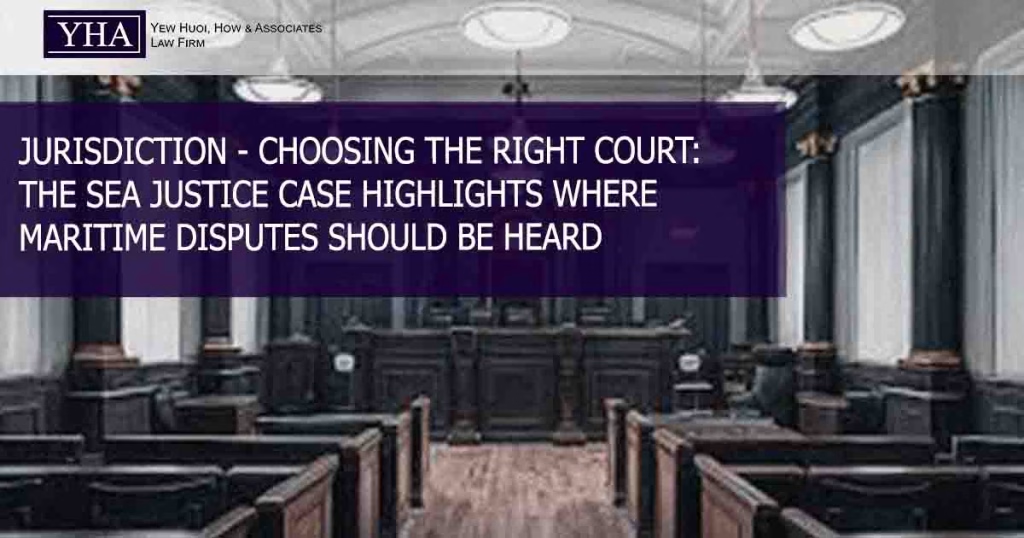Summary and Facts
The Sea Justice cases [2024] 2 Lloyd’s Rep 383 and [2024] 2 Lloyd’s Rep 429, reviewed by both the Singapore High Court and Court of Appeal, stem from a collision near Qingdao, China, between the vessels Sea Justice and A Symphony. Central to these cases were questions of jurisdiction and the appropriate forum for proceedings, as the collision occurred in Chinese waters where a limitation fund had already been set up. The courts in Singapore examined whether to retain jurisdiction or defer to the Qingdao Court under the doctrine of forum non conveniens, weighing factors such as international comity and efficient dispute resolution.
Legal Issues
- Whether Singapore or Qingdao was the appropriate forum for the proceedings?
- Whether the Singapore Court should retain jurisdiction by imposing a conditional stay, allowing Singapore-based security to be held despite the established limitation fund in China?
- Whether retaining security in Singapore would breach principles of international comity and the single-forum approach in maritime cases?
Court Findings
- Both the Singapore High Court and the Court of Appeal applied the Spiliada test to assess the appropriate forum. The courts concluded that the Qingdao Maritime Court was the more suitable forum, given the location of the collision, applicable Chinese law, and the evidence and witnesses available in China.
- The High Court ordered an unconditional stay, with the Court of Appeal affirming that retaining Singapore-based security would undermine China’s established limitation fund. The court reasoned that duplicative security would contravene international comity by disrupting China’s jurisdiction over the matter and duplicating the defendant’s obligations.
- Both courts emphasized the need for a unified jurisdiction to prevent conflicting judgments. Singapore’s Court of Appeal upheld the principle that security should be aligned with the primary jurisdiction (China) and that having multiple proceedings would lead to inefficiency and legal conflicts.
Practical Implications
The Sea Justice cases reinforce the principles of forum non conveniens in maritime law, with Singapore deferring to China based on stronger jurisdictional ties. For parties involved in cross-border maritime disputes, these rulings highlight that courts may defer to a single, appropriate forum with substantial ties to the incident to streamline proceedings and avoid jurisdictional conflicts. Importantly, this case is highly persuasive in Malaysia, as the Spiliada test for forum non conveniens applies in Malaysia as well, as recognized in American Express Bank Ltd. v. Mohamad Toufic Al-Ozeir & Anor.

